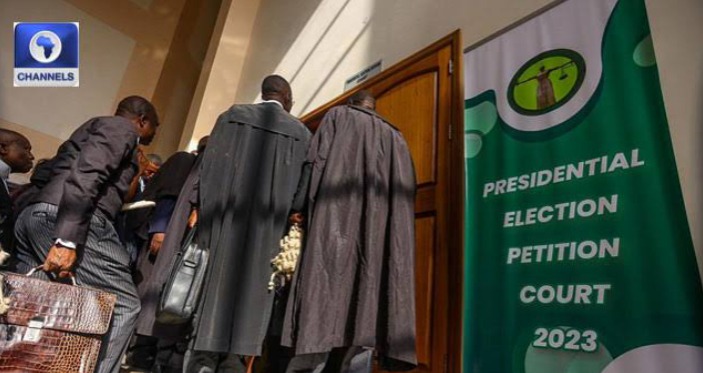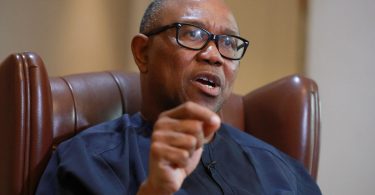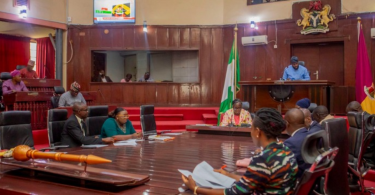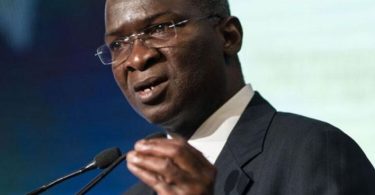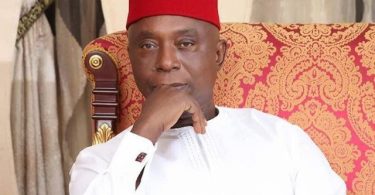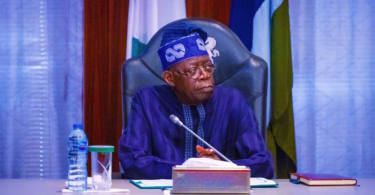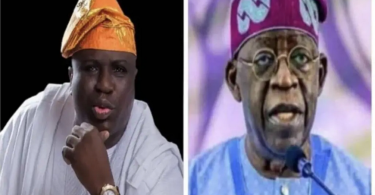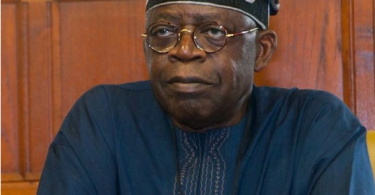On Tuesday, the Independent National Electoral Commission, INEC, ended its case against Mr. Peter Obi, the candidate for the Labour Party, who said that the 2023 presidential election was rigged in favour of President Bola Tinubu of the ruling All Progressives Congress, APC.
In response to the accusation, the electoral body brought only one of the three witnesses it had originally lined up to appear before the Presidential Election Petition Court (PEPC) in Abuja.
The witness, Mr. Lawrence Bayode, is a Deputy Director of ICT at the Commission. When he was being questioned by President Tinubu’s lead attorney, Chief Wole Olanipekun, SAN, he said that the polling unit results in Forms EC8A, which were captured and sent to the IReV portal with the help of the Bimodal Voter Accreditation System, BVAS, machines, did not matter for the collation of the presidential election results.
Mr. Bayode, who said he had worked at the INEC for more than 24 years, responded to Obi’s claim that blurry results were uploaded to the result viewing portal by saying that the results that were downloaded from the Commission’s website did not change the physical results of the election that were written down at the different polling units.
Also, the witness told the court that he does not know which website INEC, Obi, and the LP used to get the blurry election results.
During cross-examination by the APC’s lawyer, the witness, Prince Lateef Fagbemi, SAN, admitted that INEC had technical problems that made it hard to send the election results in real time. However, he said that the problem did not affect the counting of the votes each candidate got from the polling units.
He said that the applicants should have gotten hard copies of the polling unit results because they said that the ones that were uploaded to the IReV portal were not clear.
The witness said that before the presidential election, INEC tried the technology it used to make sure it worked.
In response to questions from the lawyers for the applicants, Mr. Patrick Ikwueto, SAN, the witness, told the court that the software application for the election was tested on February 4.
He also said that there was a report on the software testing, even though it wasn’t one of the papers that were brought to court.
He did, however, agree with the applicants that the report of the e-Transmission application said that steps needed to be taken to fix the high vulnerability that was found in the report.
Before the witness was let out of the box, the lawyer for the applicants handed over a copy of the e-Transmission Server Web and a Compliance form. These were accepted as evidence and marked as Exhibits in the case.
The witness said that INEC had a “cloud trail log account” with Amazon Web Services (AWS), which offered the technology infrastructure used for the election.
He said that the said account could be viewed and that it would show patches that were put on INEC’s e-transmission applications on AWS to fix problems that happened on election day.
After the witness was released, INEC’s lead attorney, Mr. Abubakar Mahmoud, SAN, told the court that the Commission would not bring in any more witnesses.
“My lords, that will be all for the first respondent,” he said.
Chief Olanipekun, SAN, who is defending both President Tinubu and Vice President Kashim Shettima, then said that his clients, who are the 2nd and 3rd Respondents, planned to start their defence.
So, the five-person panel led by Justice Haruna Tsammani postponed the case until Wednesday so that the 2nd and 3rd Respondents could start their defence of the petition.
Obi, who came in third place in the presidential election, ended his case on June 23, after he presented several pieces of written proof and called 13 of the 50 witnesses he had originally planned to call.
Among the evidence he brought to court were polling unit results from 36 states of the federation and the Federal Capital Territory, FCT, Abuja. He also brought a bundle of documents with the total number of Permanent voters cards (PVCs) that were collected in 32 states before the 2023 general elections.
Obi and his party also gave four video exhibits, including one of a press conference where the Chairman of INEC, Prof. Mahmoud Yakubu, said that the results of the election would be sent electronically to the IReV portal in real time using the Bimodal Voter Accreditation System, or BVAS, machines. They also gave me a bundle of documents with the total number of registered voters in each state.
Other election papers that the court accepted as evidence were certified copies of INEC Forms EC40Gs, EC40G1, and EC40GPU, which were reports of different polling units where elections did not happen.
All of the Respondents said that none of the papers should be used as evidence and that they would explain why in their final written address.
You may remember that Obi and the LP went to court to question the decision that President Tinubu was the winner of the presidential election.
In their joint petition, they argued that President Tinubu was not the real winner of the race.
In their case, marked CA/PEPC/03/2023, the petitioners also said that President Tinubu was not fit to run for president.
The petitioners say that when Tinubu’s running mate, Shettima, became the Vice Presidential candidate, he was still the APC candidate for the Borno Central Senatorial race.
The petitioners also said that Tinubu shouldn’t be allowed to run for president because he had been convicted of a crime involving dishonesty and drug trafficking and fined $460,000 by the United States District Court, Northern District of Illinois, Eastern Division, in Case No. 93C 4483.
The petitions said that INEC broke its own Regulations and Guidelines by using corrupt practises and not following the rules of the Electoral Act of 2022, which meant that the election was invalid.
The petitioners said that, in order to carry out the presidential election, the electoral body was required by law to set up and use technological devices for the accreditation, verification, continuation, and authentication of voters and their personal information.
So, they are asking the court, among other things, to say that all the votes recorded for Tinubu and the APC were lost votes because he was not qualified or disqualified.
“That it be decided that, based on the remaining votes (after taking into account the votes given to the 2nd Respondent), the 1st Petitioner (Obi) got a majority of the legal votes cast at the election and at least 25% of the votes cast in at least 2/3 of the States of the Federation and the Federal Capital Territory, Abuja, and met the constitutional requirements to be declared the winner of the 25th February 2023 presidential election.”
“That it be decided that the 2nd Respondent did not win the presidential election in the Federal Capital Territory, Abuja, on February 25, 2023, because he did not get 25% of the votes.
In the alternative, the petitioners want an order to cancel the election and force INEC to hold a new election in which Tinubu, Shettima, and the APC, who are named as the 2nd, 3rd, and 4th Respondents, shall not take part.
In another alternative prayer, the petitioners want the court to rule that the presidential election was invalid because it was not mostly run according to the rules of the Electoral Act 2022 and the Constitution of 1999, as modified.
Also, they asked for an order “cancelling the presidential election held on February 25, 2023, and ordering the first respondent to hold a new election for the President of the Federal Republic of Nigeria.”
Teejanyy (
)

